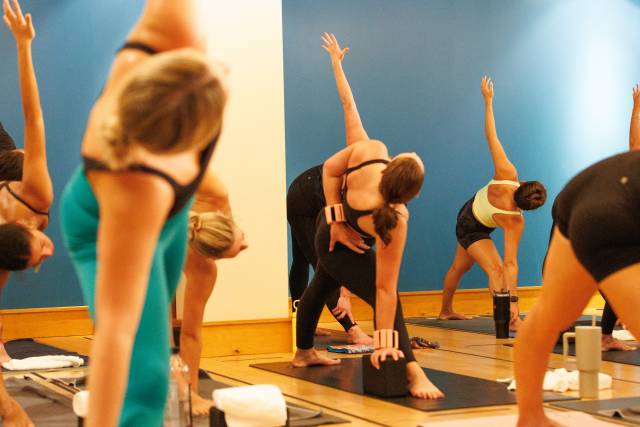In our fast-paced, constantly connected world, finding moments of peace and clarity can seem like an impossible task. Yet, the ancient practices of mindfulness and meditation offer a beacon of hope, promising not just stress reduction but a renewed sense of focus and fulfillment in our daily lives. This blog post explores how integrating these practices into your routine can transform your approach to life’s challenges and enhance your overall well-being.
The Impact of Practicing Mindfulness & Meditation
At their core, mindfulness and meditation are practices that train our attention and awareness. Mindfulness involves being fully present in the moment, aware of where we are and what we’re doing, without being overly reactive or overwhelmed by what’s going on around us. Meditation, often used as a tool to develop mindfulness, typically involves setting aside time to focus the mind, often on a particular object, thought, or activity.
While these practices have roots in Buddhist traditions, they’ve been adapted for secular use and are now widely recognized for their psychological benefits. From reducing stress and anxiety to improving focus and emotional regulation, the positive impacts of mindfulness and meditation are supported by a growing body of scientific research.
The Science Behind Stress Reduction
Stress is a natural part of life, but chronic stress can have serious implications for our physical and mental health. When we’re stressed, our bodies release cortisol and other stress hormones, which can lead to a range of health issues if sustained over time. This is where mindfulness and meditation come in.
Regular practice of mindfulness and meditation has been shown to lower cortisol levels and reduce the body’s stress response. A study published in the journal “Health Psychology” found that mindfulness meditation lowers the stress hormone cortisol. Moreover, research from Harvard Medical School suggests that meditation can actually change the brain’s structure, reducing the size of the amygdala, the region responsible for fear, anxiety, and stress.
By incorporating these practices into our daily lives, we’re not just managing stress in the moment; we’re actually rewiring our brains to be more resilient to stress in the long term.
Cultivating Mental & Spiritual Focus in a Distracted World
In an era of constant notifications and information overload, our ability to focus has become a precious commodity. Mindfulness and meditation offer powerful tools to reclaim our attention and improve our concentration.
The practice of focusing on a single point of attention, such as the breath in meditation, strengthens our ability to sustain focus in other areas of life. A study published in the journal “Psychological Science” found that just two weeks of mindfulness training significantly improved participants’ focus and memory.
Moreover, regular practice helps us become more aware of when our mind has wandered, allowing us to bring our attention back to the task at hand more quickly. This improved meta-awareness not only enhances our productivity but also reduces the mental fatigue associated with constant task-switching.
Finding Daily Fulfillment Through Presence
One of the most profound benefits of mindfulness and meditation is their ability to enhance our sense of fulfillment and life satisfaction. By training ourselves to be more present, we become more attuned to the small joys and moments of beauty in our daily lives that we might otherwise miss.
Mindfulness practices encourage us to approach our experiences with curiosity and without judgment. This open attitude can lead to greater appreciation for life’s simple pleasures and a deeper sense of gratitude. Research published in the “Journal of Personality and Social Psychology” has shown that gratitude is strongly correlated with greater happiness and life satisfaction.
Furthermore, by reducing our tendency to dwell on the past or worry about the future, mindfulness helps us engage more fully with the present moment. This presence can lead to richer relationships, more meaningful work experiences, and a greater sense of purpose in our daily activities.
Practical Tips for Incorporating Mindfulness & Meditation into Your Daily Life
While the benefits of mindfulness and meditation are clear, getting started can seem daunting. Here are some practical tips to help you incorporate these practices into your daily routine:
- Start small: Begin with just 5 minutes a day. You can gradually increase the duration as you become more comfortable with the practice.
- Choose a consistent time: Whether it’s first thing in the morning or during your lunch break, having a set time can help make meditation a habit.
- Use guided meditations: Apps like Headspace, Calm, or Insight Timer offer guided meditations that can be helpful for beginners.
Easy Ways to Practice Mindfulness in Everyday Activities
Practicing mindfulness in your daily life is easier than you may think. You don’t always need to sit in formal meditation. Try bringing mindful awareness to routine activities like eating, walking, or even washing dishes.
- Be patient and kind to yourself: Your mind will wander, and that’s okay. The practice is in noticing when it wanders and gently bringing it back.
- Create a dedicated space: Having a specific spot for meditation can help signal to your brain that it’s time to practice.
- Join a group: Restorative practice with others can provide motivation and support. Look for local meditation groups or online communities.
- Incorporate mindful breaks: Take short “mindful breaks” throughout your day to check in with yourself and reset your focus.
Remember, the goal isn’t to clear your mind of all thoughts or to achieve a state of perfect calm. Rather, it’s about developing a different relationship with your thoughts and experiences – one of awareness and acceptance.
As you embark on this journey of mindfulness and meditation, be patient with yourself. Like any skill, it takes time and practice to develop. But with consistency, you’ll likely find that these practices become not just a part of your routine, but a transformative force in your life, leading to reduced stress, improved focus, and a deeper sense of fulfillment in your daily experiences.
Mindfulness & Meditation: A Wellspring of Inner Strength
The beauty of mindfulness and meditation lies in their simplicity and accessibility. You don’t need any special equipment or abilities – just a willingness to be present and a commitment to practice. As you cultivate these skills, you may find that life’s challenges become more manageable, your relationships deepen, and you discover a wellspring of inner peace and contentment that you can draw upon, no matter what life throws your way.
Start now. Take a deep breath, bring your attention to the present moment, and take the first step on your journey to a calmer, more focused, and more fulfilling life.







